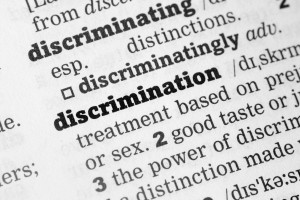The U.S. Supreme Court’s rulings in two recent cases clarify what is necessary in order for an employee or former employee to bring and be successful in a discrimination or retaliation case against a former employer, including small business owners.
In University of Texas Southwestern Medical Center v. Nassar, the Supreme Court held that a “but for” standard applies to discrimination cases. A jury must find that “but for” a supervisor’s desire to retaliate against an employee or former employee the discriminatory conduct or action would not have occurred.
A key change from this case is the insertion of the word “supervisor” and the clarification of who is considered a supervisor in these types of cases. The Court held that for purposes of a discrimination case, a supervisor is an individual who has broad managerial authority such as the ability to hire employees and terminate employment.
In Vance v. Ball State University, the Supreme Court further clarified what is required in order for an individual to be considered a supervisor. The Court ruled that supervisors are those who have the authority to take real and serious employment actions against the alleged victim in the lawsuit.
So, what does this mean for small business owners?
A business can only be held liable for discriminatory action on the part of someone employed as a supervisor. A business will not be held vicariously liable for discriminatory conduct perpetrated by a victim’s co-worker. In a nutshell, a supervisor is a person who has authority to:
➢ Hire
➢ Demote
➢ Promote
➢ Transfer
➢ Discipline
➢ Fire
Here are a few real world examples to show how the new standards are applied.
Example 1: Sally owns Pretty Pooches Pet Shop. Sally hires Bob to supervise the shop. Bob has the authority to hire new employees, fire employees and discipline them. Bob hires Katie and Rob to work at the shop. Rob, a white male, always gets better hours and receives higher pay. Bob tells Katie her pay is lower because she is a woman. Katie quits her job because of the discrimination based on her sex and files a discrimination suit against Sally and Pretty Pooches Pet Shop.
• In Example 1, Sally, as the owner of Pretty Pooches Pet Shop, could be held liable for Bob’s discriminatory behavior against Katie. Sally could be held liable because Bob was a supervisor.
Example 2: Sally owns Pretty Pooches Pet Shop. Sally hires Rob and Katie to work in the shop. Rob and Katie work every shift together, and during work Rob is constantly telling Katie she can not do her job correctly because she is just a “dumb girl.” Katie quits her job because of the discrimination based on her sex and files a discrimination suit against Sally and Pretty Pooches Pet Shop.
• In Example 2, Sally, as the owner of Pretty Pooches Pet Shop, could not be held liable for Rob’s discriminatory behavior against Katie. Sally could not be held liable because Rob was not a supervisor. Rob was merely Katie’s co-worker.
The Supreme Court’s decisions will help prevent the number of frivolous lawsuits brought against small businesses by limiting vicarious liability to supervisors. This is extremely important because frivolous lawsuits can be financially devastating, especially to small business owners.
If you are a small business owner and have questions concerning the implications of the recent Supreme Court rulings on your small business, please contact the law office of Bellas & Wachowski – Attorneys at Law at (800) 825-9260.
 Chicago Business Attorney Blog
Chicago Business Attorney Blog


